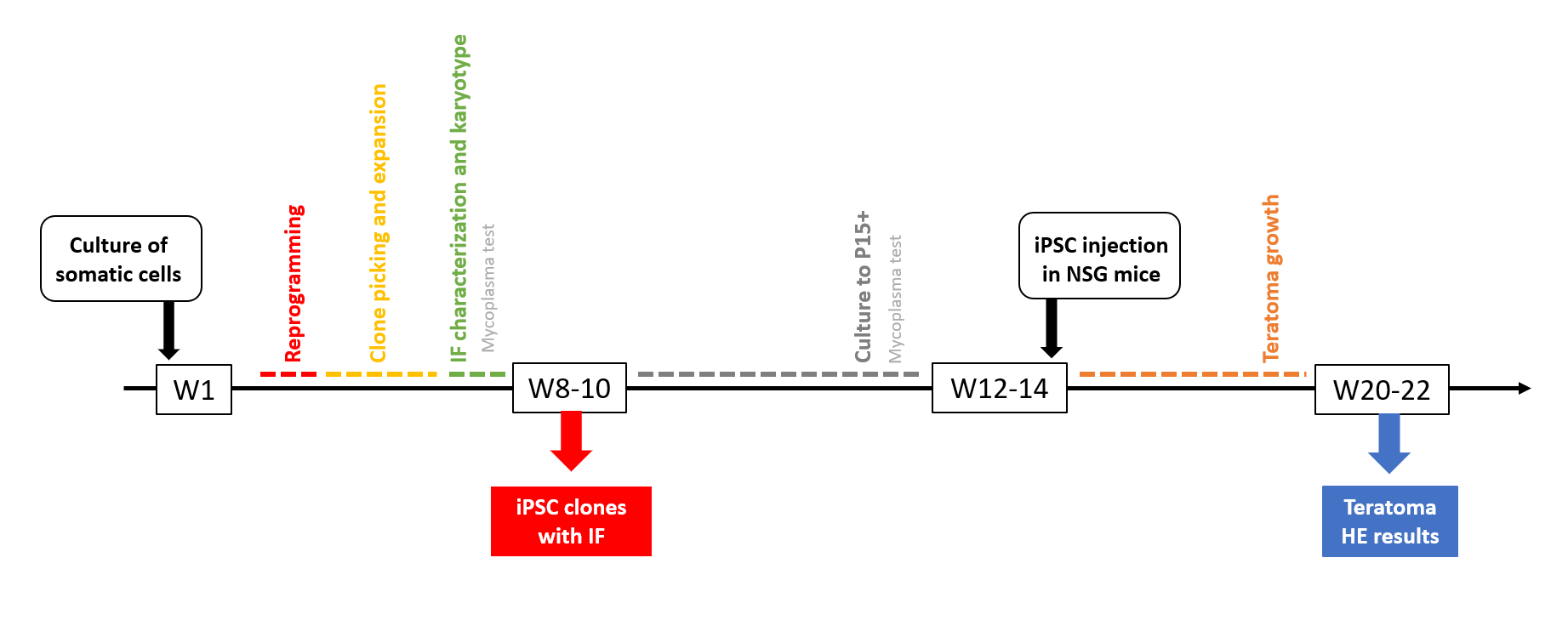.png.aspx)
The mission of the iPSC Reprogramming Platform is to offer consultations, trainings and a highly technological and scientific support for the CHU Sainte-Justine researchers and external collaborators and clients as well in their projects involving iPSC.
Induced pluripotent stem cells (iPSC) were discovered in 2006 in mice and in 2012 using human cells. iPSC can be derived from any somatic cell using 4 transcription factors encoding Oct4, Sox2, Klf4, and c-Myc, can be expanded for unlimited time and differentiated into several cell types of the organism. The capacity of iPSC to grow for unlimited time confers them a great potential in multiple disease modeling and drug development. In addition, iPSC represent a very promising tool for regenerative medicine based on the replacement of pathological cells with healthy cells.
Moreover, the combination of iPSC and gene editing technologies (using divers system as CRISPR-Cas9) permits among other possibilities the creation of specific pathological cells difficult to isolate directly from patients as well as patient iPSC-derived isogenic control cells.
Services
- Somatic cell reprogramming (fibroblasts or peripheral blood cells) or immortalized cells into induced pluripotent stem cells (iPSC)
- Generation of 2 clones per line
- Characterization of generated iPSC using immunofluorescence for pluripotency markers (SSEA4, Tra1-60, Sox2- OCT4)
- Mutations screen on iPSC generated clones by sequencing (only on cells with a described mutation)
- Characterization of generated iPSC in vivo with the formation of teratoma using NSG immunodeficient mice (2 mice per clone)
- RT-PCR analysis for the SeV clearance
- qPCR analysis for detecting the majority of karyotypic abnormalities reported in human iPSC
- Directed differentiation of iPSC into ecto-, meso- and endoderm lineage and characterization
- Embryoid bodies (EB) formation
- Karyotype by G-Banding (done in the cytogenetic department of the CHU Sainte-Justine)
- iPSC differentiation into several cell-types including lung and neural progenitor cells, endothelial cells, hepatic cells, fibroblasts and myoblasts (a preliminary consultation is necessary for the preparation of an estimate budget)
Service request
Please fill the request form and return it back to the platform manager. You will be contacted later to organize a brief consultation in order to discuss your project and get a personalized quote prepared based on your specific needs in terms of cell reprogramming.
Equipment
Preview

Team
Manager
Basma Benabdallah, PhD
+1 (514) 345-4931, poste 6531
basma.benabdallah.hsj@ssss.gouv.qc.ca
Scientific director
Christian Beauséjour, PhD
+1 (514) 345-4931, poste 4385
christian.beausejour.hsj@ssss.gouv.qc.ca
Research assistant
Sylvie Pinto, M.Sc
+1 (514) 345-4931, poste 7618
sylvie.pinto.hsj@ssss.gouv.qc.ca
Research assistant
Célia Kassouri, M.Sc
+1 (514) 345-4931, poste 7618
celia.kassouri.hsj@ssss.gouv.qc.ca
Head of Scientific Platforms
Valérie Villeneuve, PhD
+1 (514) 345-4931, poste 2786
valerie.villeneuve.hsj@ssss.gouv.qc.ca
Financial Partners
- Fondation Charles-Bruneau
- Canadian Pacific
- Réseau de thérapie cellulaire, tissulaire et génique du Québec (ThéCell)
- National Research Council of Canada
- SickKids Hospital